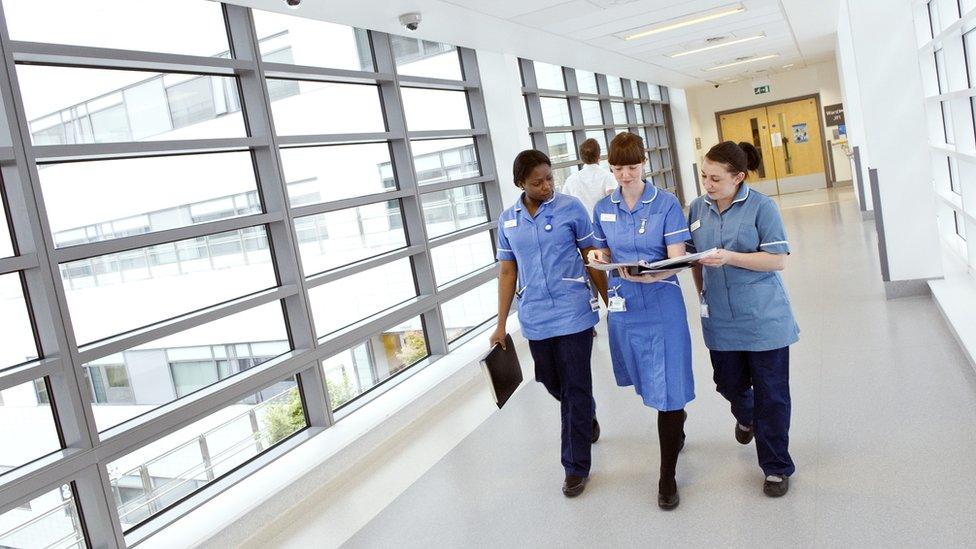Nurses' strikes: Union warns of more action unless pay talks open
- Published
- comments
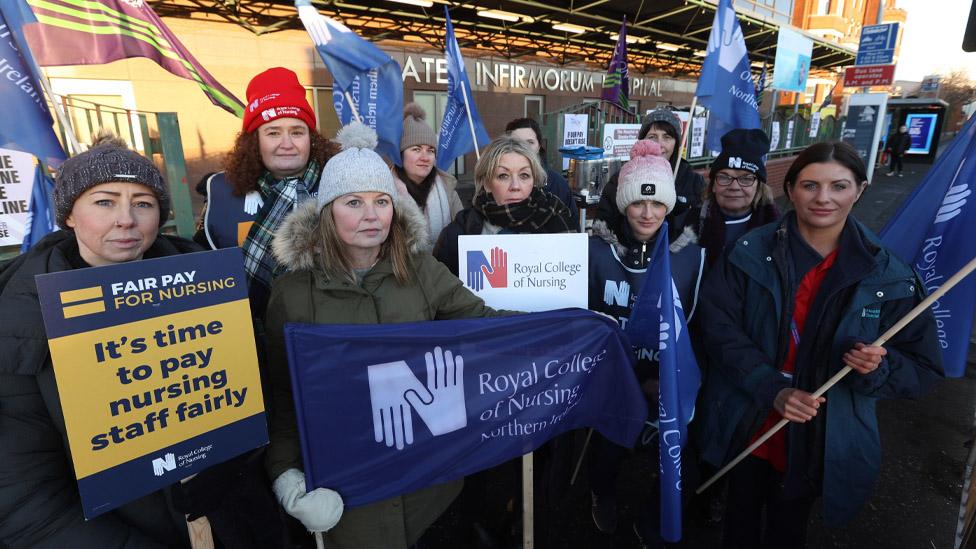
Nurses in Northern Ireland joined tens of thousands in England and Wales striking for better pay
The Royal College of Nursing could announce a fresh wave of strikes if Health Secretary Steve Barclay does not agree to reopen pay negotiations.
Speaking on the BBC's Question Time, the union's leader Pat Cullen said if the government continued to refuse to "get in a room and talk" then the dispute could escalate in the new year.
The UK government says the union's demands are unaffordable.
Nurses are already planning to strike on Tuesday.
Tens of thousands of nurses took industrial action across England, Wales and Northern Ireland on Thursday, with tens of thousands of patient appointments cancelled or postponed.
Union sources have told the BBC that if there is no move to reopen pay talks, then new strike dates will be announced before Christmas with a series of walkouts likely in January.
The level of disruption could also increase, with nurses striking across more NHS trusts in England and for longer periods of time - perhaps over two consecutive days. Industrial action is also taking place in Wales and Northern Ireland.
The NHS Confederation, which represents hospitals, has urged ministers to act to avoid strikes in the new year which it said could be "more severe" and coordinated with other health unions.
The government said the nurses' demands for a 19% pay rise are unaffordable and it has followed the recommendation of an independent pay review body in setting wages.
Nurses got an extra 3% last year after the pandemic and another rise recommended by a pay review body.
Speaking outside a hospital in London on Thursday, the UK health secretary said the government was "hugely grateful" to nurses but the 19% pay rise they wanted was "not affordable given the many other economic pressures that we face".
Mr Barclay said three-quarters of trusts had not gone on strike that day and many nurses had continued working in areas excluded from the strike because of the risk to life.
Under strike rules, emergency care must still be provided during action, for example in intensive care and A&E, and urgent cancer treatment and dialysis should run as normal - which means the biggest impact will have been on routine services. These include planned knee and hip replacements and out-patient appointments.
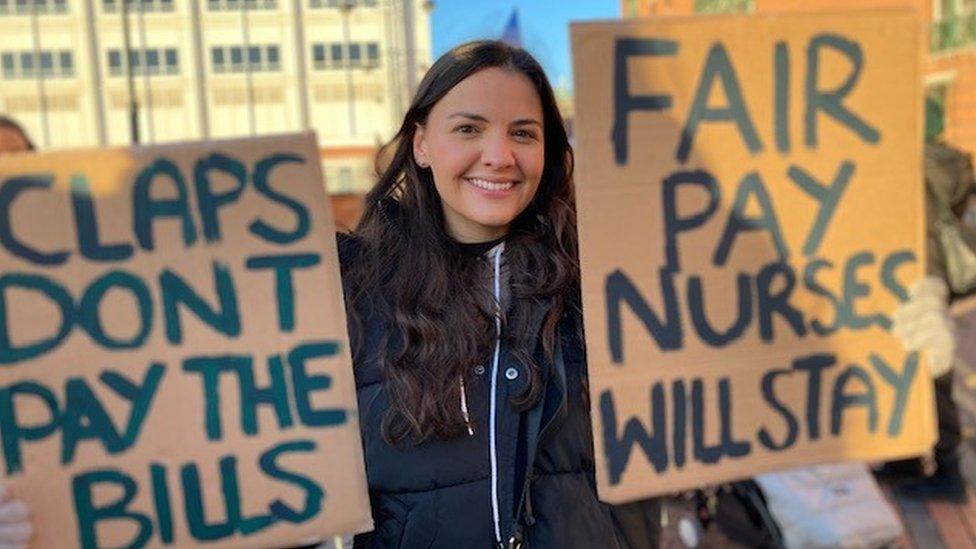
Nurse Emily Leitch was striking in Leeds in the first of two days of walkouts in December
Rebecca, a nurse striking outside St Thomas' Hospital in London on Thursday, said her job was "too tiring, it's too much, it's just not safe for either the staff or the patients to continue the way it is now".
Under-staffing was a major concern for Kelly Hopkins, who has been a nurse for 25 years in Liverpool, as well as the financial struggles of her colleagues.
"They're having to use food banks, they're coming in cold, they're going without food to feed their children, it's just crazy," she said.
Watch this video quiz to test your knowledge of nurses' pay
In England and Wales, most NHS staff have received a pay rise of roughly £1,400 this year - worth about 4% on average for nurses.
The political situation in Northern Ireland meant there was a delay in processing the increase - but nurses should receive backdated payments before the end of the financial year.
The Royal College of Nursing (RCN) wants a larger rise, of 5% above the RPI inflation rate, which currently stands at 14%, saying its members have received years of below-inflation pay increases.
The government says it has followed the recommendation of the independent NHS Pay Review Body, which said in July NHS staff should receive the £1,400 increase, with slightly more for the most experienced nurses.
The RCN has criticised this body for not being independent enough. It is made up mainly of economists and human resources professionals.
Welsh ministers said they were unable to enter pay talks without extra funding from the UK government.
In Scotland, the RCN's strike action was "paused" after ministers made a fresh offer worth just over £2,200, or 7.5%, a year for most NHS staff. Nurses have been asked to vote on that deal, with results due next week.
Related topics
- Published15 December 2022
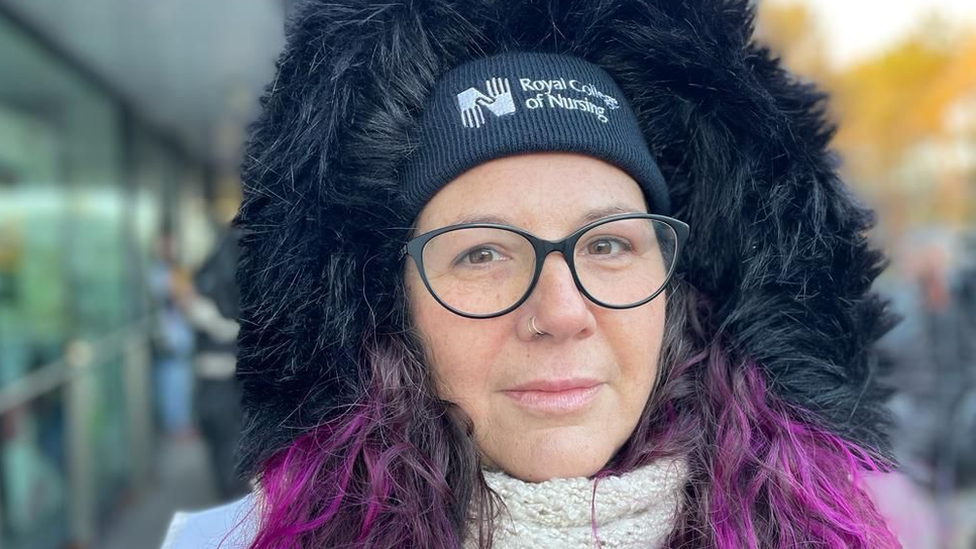
- Published15 December 2022
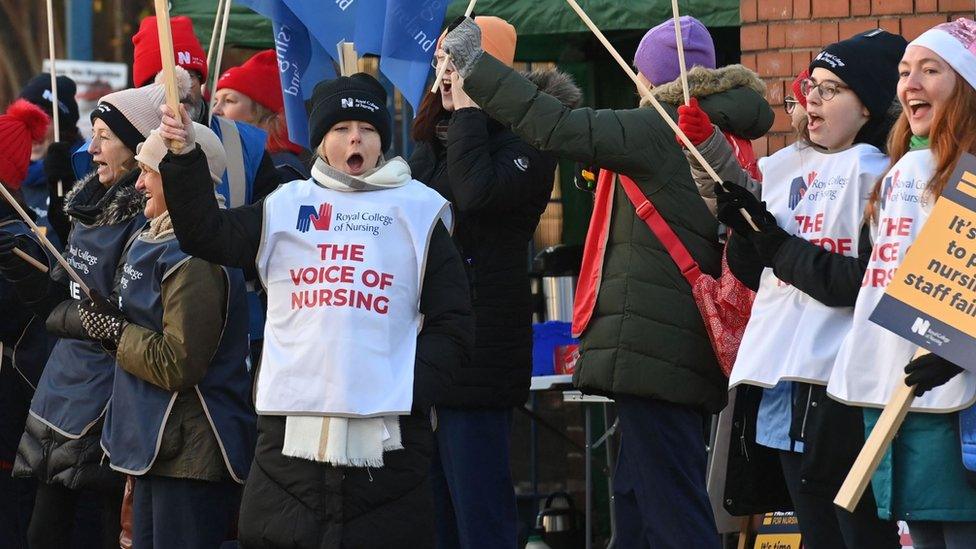
- Published15 December 2022
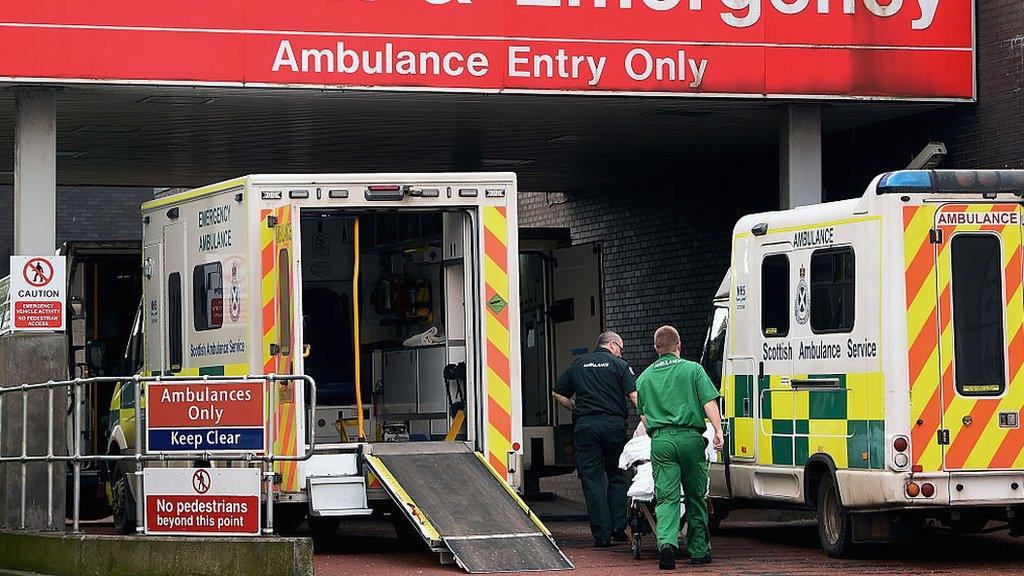
- Published17 January 2023
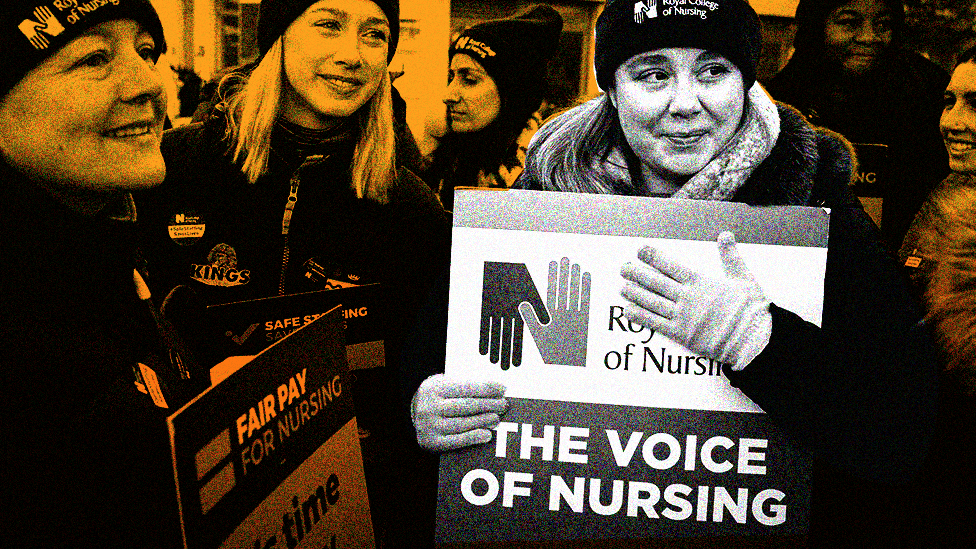
- Published2 May 2023
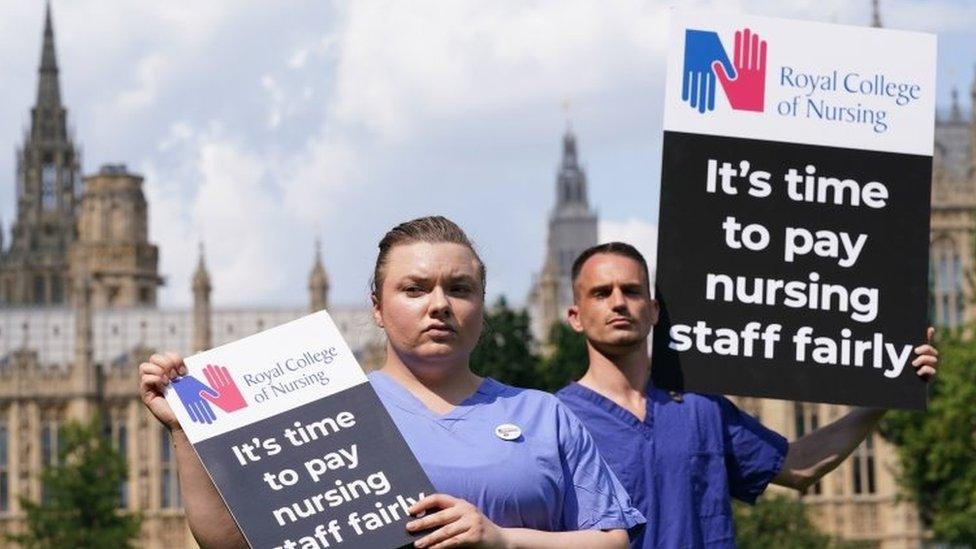
- Published14 December 2022
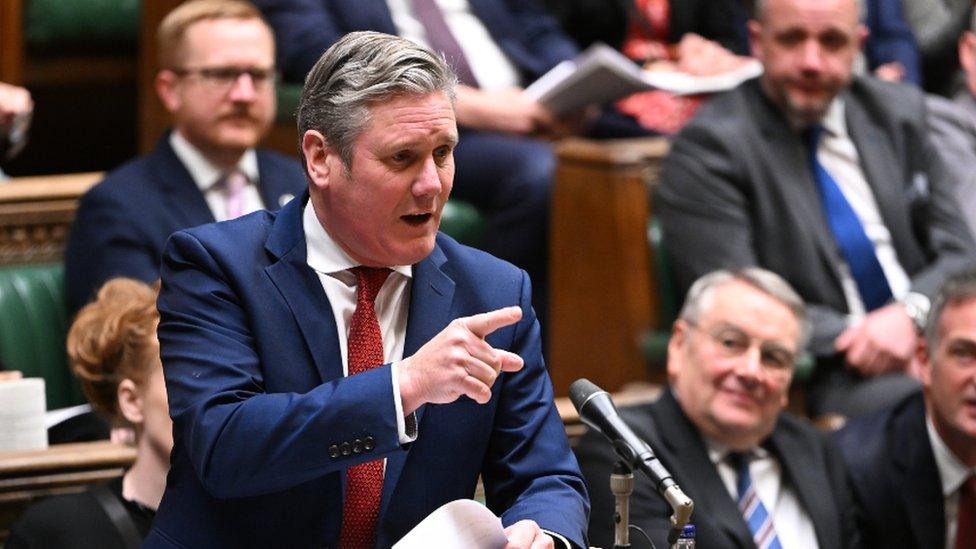
- Published12 December 2022
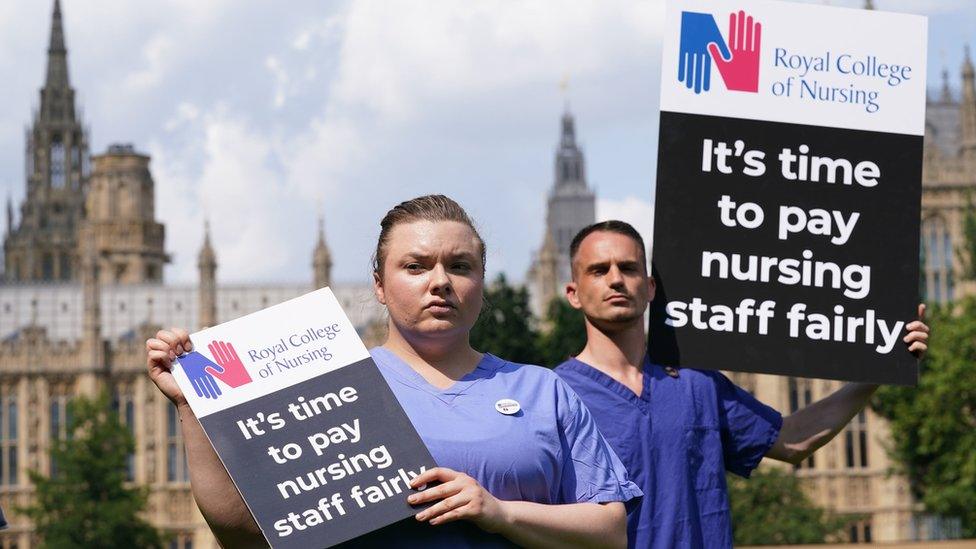
- Published30 September 2022
